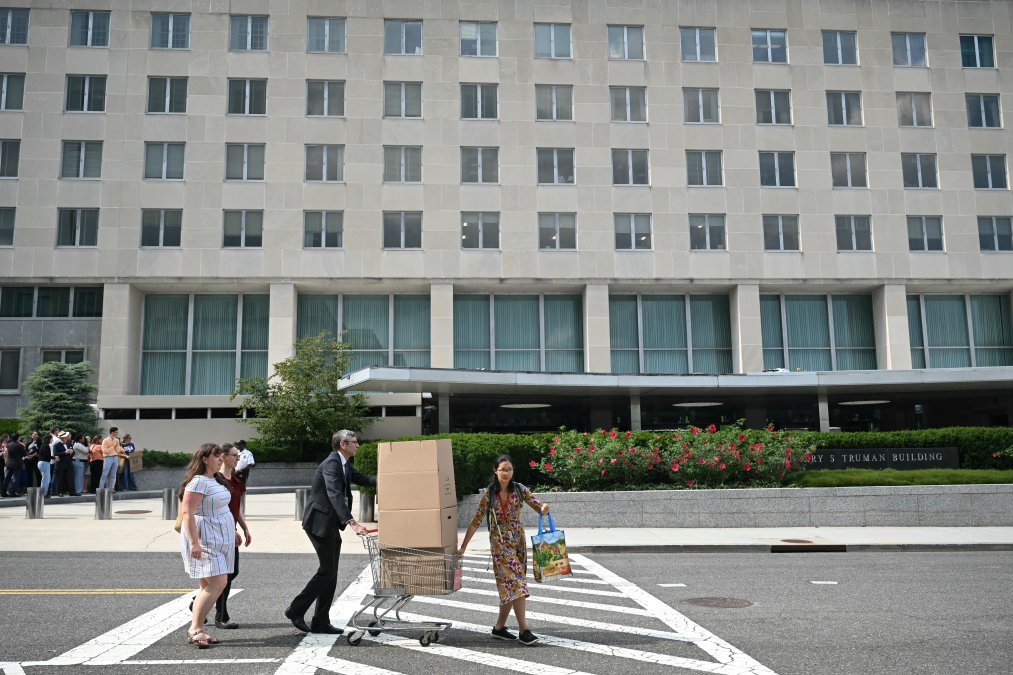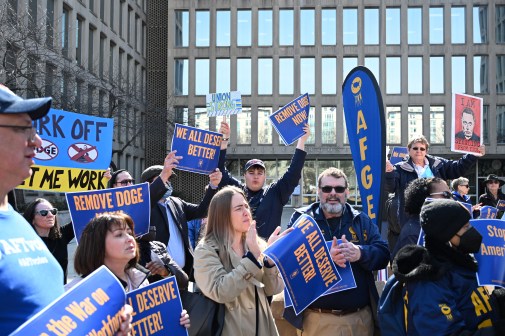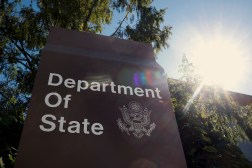Senate-approved resolution to open the government appears to halt diplomat RIFs

U.S. diplomats who were scheduled to be officially separated from the State Department on Monday following summer reduction-in-force notices might be saved, at least for now, by a bill to end the government shutdown that was passed by the Senate.
The continuing resolution advanced out of the Senate on Monday night in a 60-40 vote after several Democrats broke with the rest of their party and voted with Republicans. That bill is now headed to the House, signaling a potential end to the longest appropriations lapse in U.S. history.
In addition to its short-term funding provisions, the bill also includes language voiding federal agencies’ plans to carry out RIFs during the shutdown and guaranteeing back pay to federal workers — who the Trump administration threatened it didn’t have to compensate after an appropriations lapse.
While the RIF provision of that bill appears mostly aimed at the shutdown-related terminations, its language is broad enough that it also encompasses the timeframe in which the foreign service officers RIFs were scheduled to be officially executed, potentially halting those separations as well.
Importantly, that’s how the American Foreign Service Association, a membership organization that advocates for U.S. diplomats, reads it — and as a result, it’s arguing the department should halt actions to carry out those separations.
In a statement to FedScoop, AFSA spokeswoman Nikki Gamer said the organization believes “that Congress intended for this language to apply to as many federal employees as possible, including those who received layoff notices from the department on July 11th.”
Given that those workers were scheduled to be officially separated Monday, Gamer said “those actions should not move forward.”
“We’re also reminding the department that continuing RIF activities during a lapse in appropriations is inconsistent with the Antideficiency Act,” Gamer said. “As such, we’re urging the department to halt these actions immediately, and we’ll keep pressing to ensure every affected Foreign Service employee is protected.”
As written, Section 120 of the resolution prohibits RIF activities between Oct. 1 and Jan. 30. Specifically, it states that “any reduction in force proposed, noticed, initiated, executed, implemented, or otherwise taken by an Executive Agency between October 1, 2025, and the date of enactment, shall have no force or effect.”
Law professors agreed with the interpretation that a separation of a previously announced RIF would be barred.
Nick Bednar, an associate law professor at the University of Minnesota who focuses on administrative law and executive branch politics, told FedScoop in an email that the language is broad, covering “both the initial notice and the carrying out of RIFs.”
“Employees whose removal becomes effective between October 1st and January 30th have a strong argument that they are entitled to reinstatement, even if the RIF notice was sent prior to October 1st,” Bednar said. “Given the breadth of Section 120, the fact that the agency sent the RIF notice before October 1st does not change the outcome.”
David Super, a law professor at Georgetown whose focus areas include administrative law and legislation, similarly noted the fact that the text covers both RIFs “noticed” during the shutdown as well as other actions to separate employees.
In an email, Super said “a RIF that was fully effective by September 30 would not be overturned but those that were still pending implementation in any respect would be.”
The State Department didn’t respond to a FedScoop request for comment on the language. Spokespeople for the House and Senate appropriations committees as well as Senate Foreign Relations and House Foreign Affairs committees also didn’t respond to requests for comment.
A House Democratic aide, however, said their interpretation of the resolution was that implementation and execution of pending RIFs would be prevented, including those at State.
State is one of many agencies that has conducted a reduction-in-force and restructuring during President Donald Trump’s second administration. That July RIF caused chaos for some bureaus where workers said the scope of those terminations was unexpected.
According to a State Department frequently asked questions sheet on the RIFs that was last updated Oct. 30, the date for foreign service employees impacted by the RIF was still Nov. 10, with their last payment coming Nov. 26.
It’s not clear exactly how many diplomats that scheduled Monday separation would impact. In July, 246 received RIF notices, but some may have retired before the separation date, making the exact number affected right now unclear, Gamer said.
It’s also not clear if there are any other workers who received RIF notices before the shutdown, and then faced separation during the work stoppage, who would be similarly situated.
Corrected Nov. 11 to adjust language about the impact on diplomats and add a response from a House Democratic aide.






